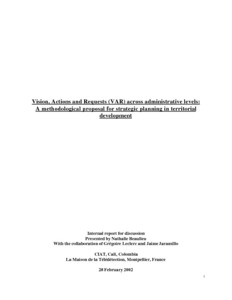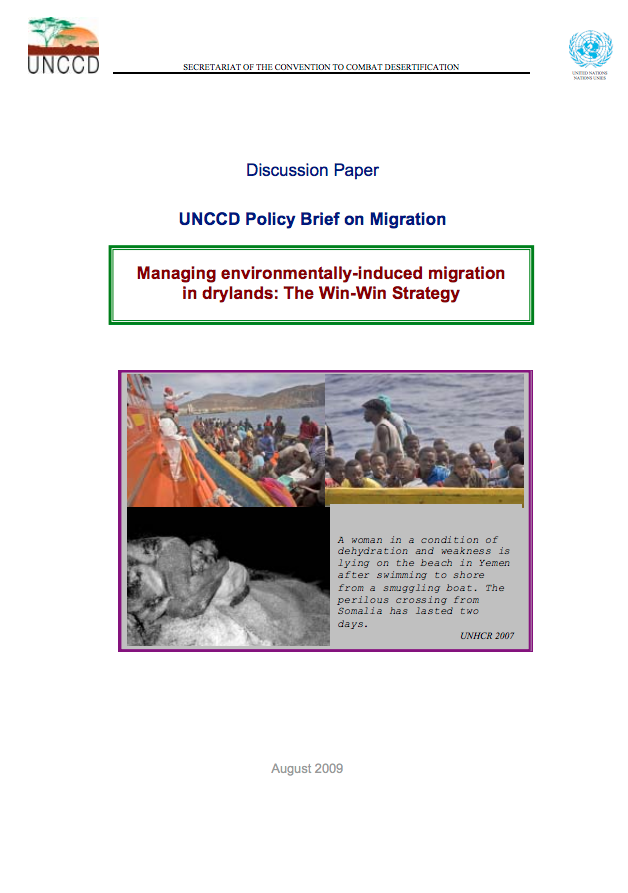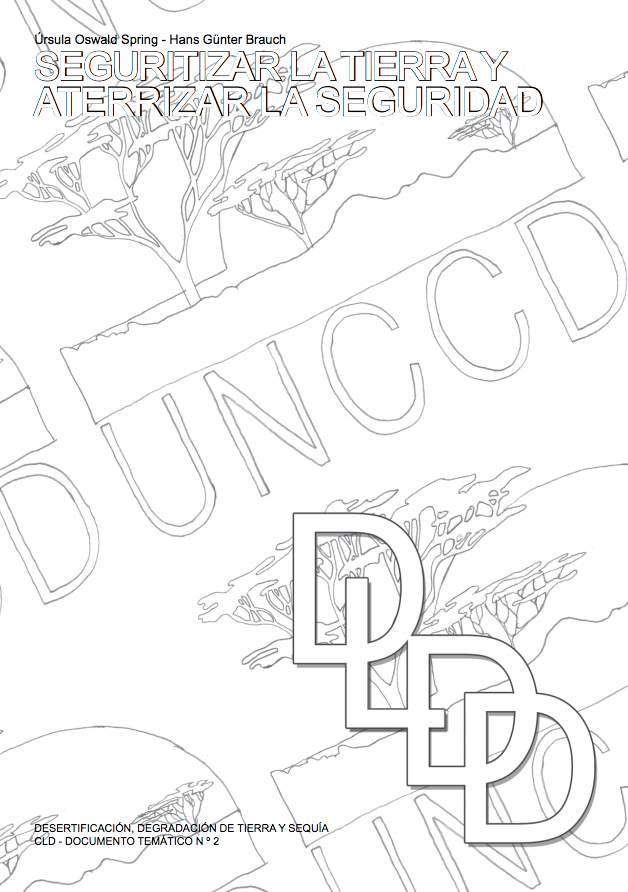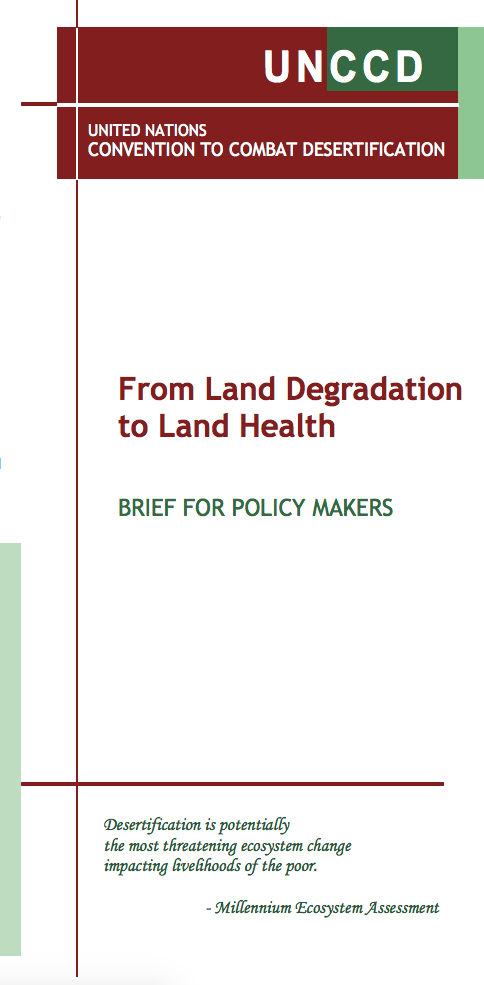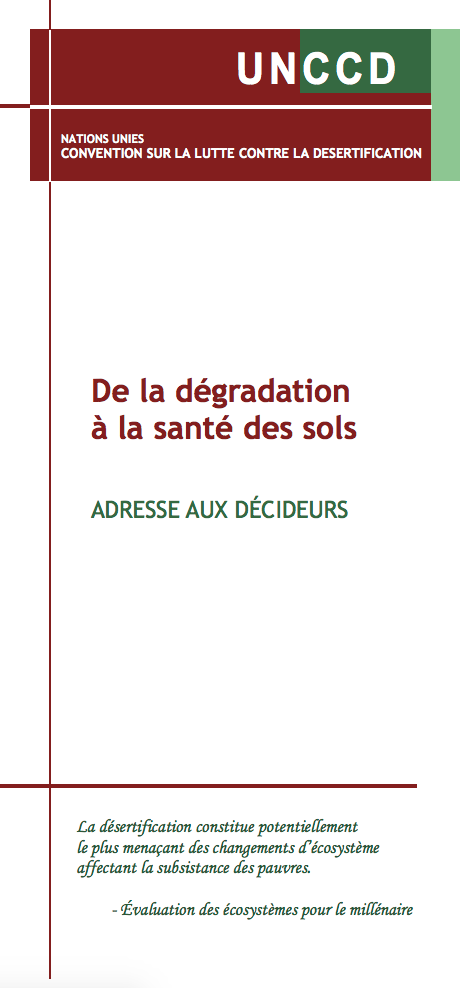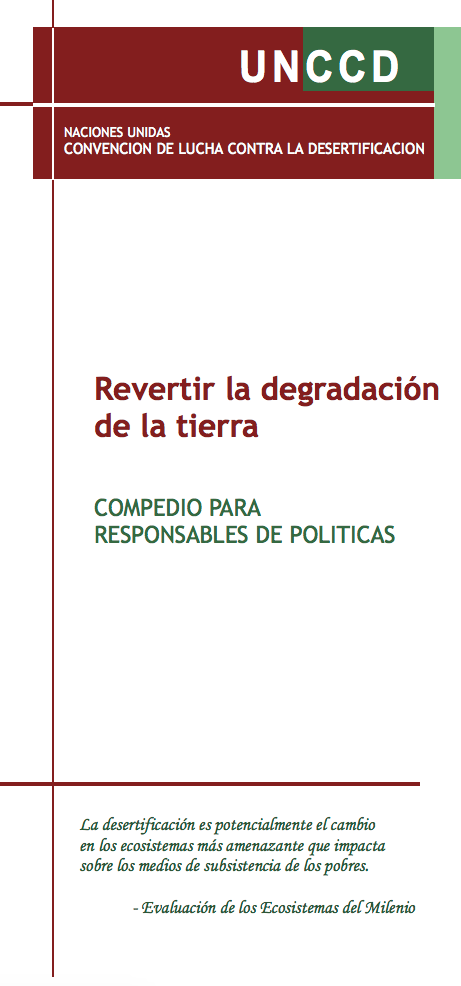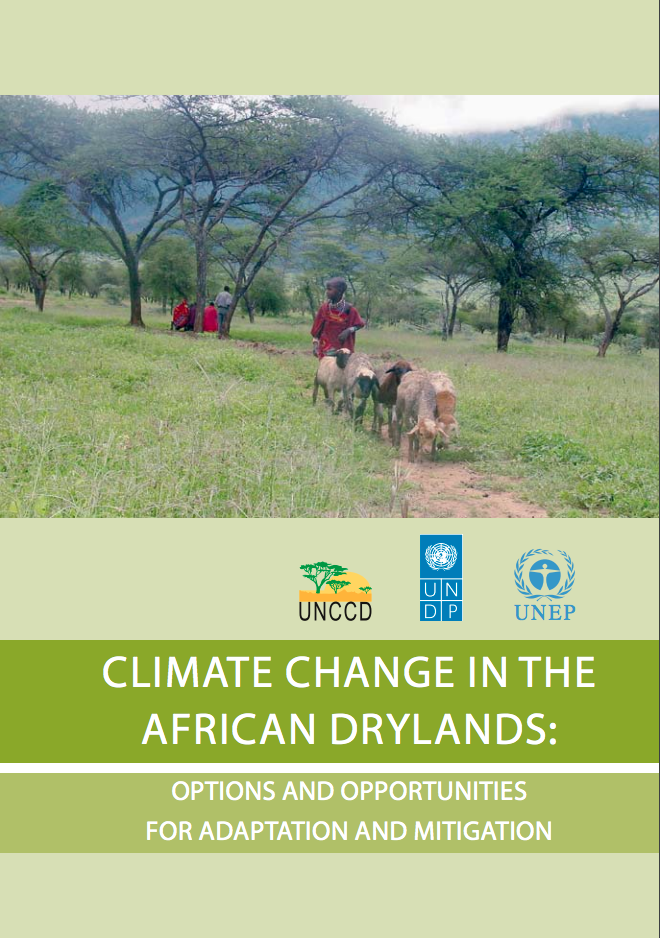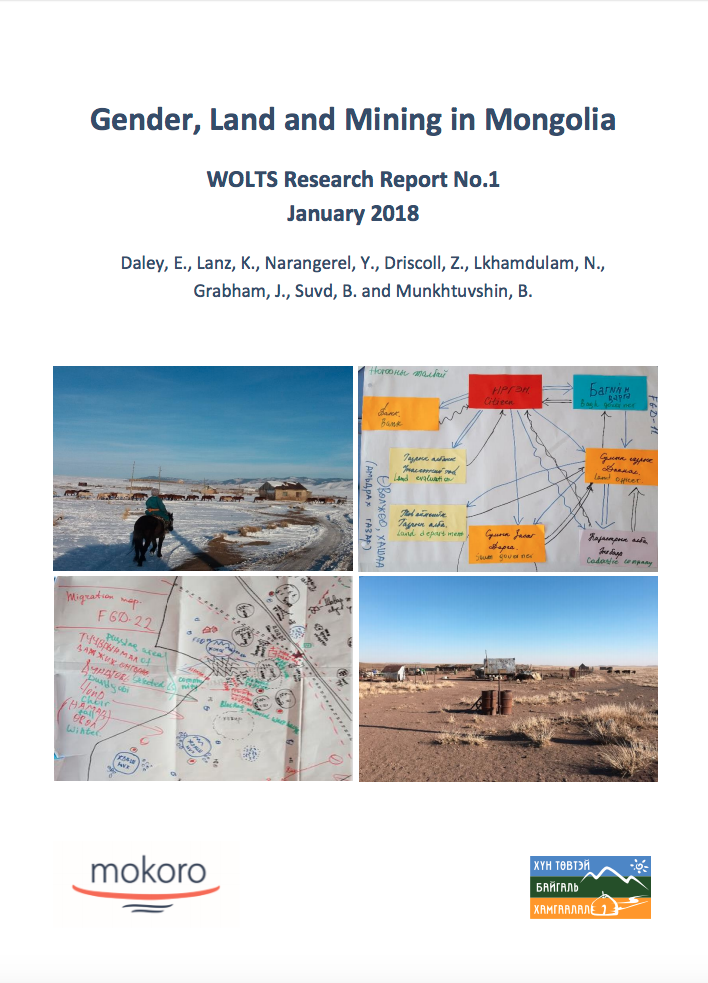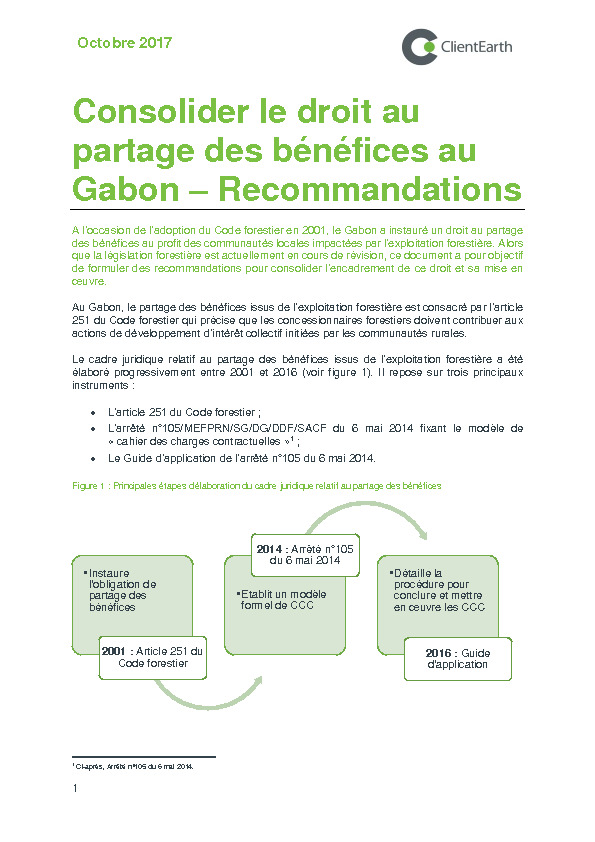Managing environmentally-induced migration in drylands: The Win-Win Strategy
Human activities have resulted in unprecedented phenomena and severe impacts for the 21st century such as land degradation, natural resources scarcity, climate change, and a rapid decline in biodiversity. These alterations engender secondary effects such as political conflicts, disputes over resources, social disruptions and sudden shocks of catastrophic weather events which are becoming more frequent in critical regions of the world, particularly in drylands; and exacerbate threats for human, national and international security.
Seguritizar La Tierra Y Atterizar La Seguridad
En la no tan larga historia de la Humanidad, nuestros antepasados han luchado con demasiada frecuencia por la tierra y el agua. Aquellos tiempos están nuevamente de actualidad.
From Land Degradation to Land Health
This is a brief for Policy Makers titled "From Land Degradation to Land Health"
De la dégradation à la santé des sols
C'est une adresse aux Décideurs "De la dégradation à la santé des sols"
Revertir la degradación de la tierra
Esto es un Compedio Para Responsables de Politicas "Revertir la degradación de la tierra"
Climate change in the African drylands: Options and opportunities for adaptation and mitigation
The drylands of Africa, exclusive of hyper-arid zones, occupy about 43 per cent of the continent, and are home to a rapidly growing population that currently stands at about 325 million people. Dry zones, inclusive of hyper-arid lands, cover over 70 per cent of the continent’s terrestrial surface. Outside of the cities many dryland inhabitants are either pastoralists, sedentary or nomadic, or agro-pastoralists, combining livestock-rearing and crop production where conditions allow.
Gender, Land and Mining in Mongolia
Mokoro’s practical and action-oriented long-term strategic research project, the Women’s Land Tenure Security Project (WOLTS), is piloting its methodology through a ‘Study on the threats to women’s land tenure security in Mongolia and Tanzania’.
Ley de la inversion privada en el desarrollo de las actividades economicas en las tierras del territorio nacional y de las comunidades campesinas y nativas
Artículo 1.- La presente Ley establece los principios generales necesarios para promover la inversión privada en el desarrollo de las actividades económicas en las tierras del territorio nacional y de las comunidades campesinas y nativas.
A szociális és szolidáris gazdaság csírái a magyarországi vidéki térségekben (Seeds of Social and Solidarity Economy in Hungarian Rural Areas)
The social and solidarity economy (SSE) is an emerging sector of the European economies. It’s importance is demonstrated by millions of employees and significant share of GDP. In recognition of its perceptivity, ministries dedicated to SSE have been established in many countries. However, there is a lively debate about on the definition of SSE itself. Opinions on the role of employment, the relations to governments and attitudes to competitiveness differ from each other. In the first part of my paper a clarification of the conceptual issues will be summarized.
Transformation of rural-urban cultural landscapes in Europe: Integrating approaches from ecological, socio-economic and planning perspectives
This paper presents a review of the presentations and synthesis of the discussion during a Symposium on ‘Transformation
of rural-urban cultural landscapes in Europe: Integrating approaches from ecological, socio-economic
and planning perspectives’ held at the European IALE conference 2009 in Salzburg, Austria. The symposium
addressed an extended and much debated subject of the landscape dynamics in Europe. The papers presented
during the symposium showcased a broad spectrum of cutting edge research questions and challenges faced by
Consolider le droit au partage des bénéfices au Gabon – Recommandations
A l’occasion de l’adoption du Code forestier en 2001, le Gabon a instauré un droit au partage des bénéfices au profit des communautés locales impactées par l’exploitation forestière. Alors que la législation forestière est actuellement en cours de révision, ce document a pour objectif de formuler des recommandations pour consolider l’encadrement de ce droit et sa mise en oeuvre.

